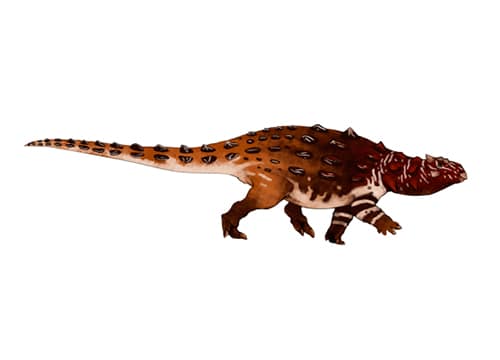Gobisaurus


Name: Gobisaurus
Pronounced: Go-bee-sore-us 
Meaning: Gobi lizard
Type: Armoured Dinosaur
Length: 5 meters long
Diet: Herbivore
Period: Early Cretaceous
Years: 121-99 million years ago
Location: Mongolia
Description: Gobisaurus is a genus of small, bipedal dinosaur that lived during the Early Cretaceous Period, about 125 million years ago. It is known from a single, partial skeleton that was discovered in Inner Mongolia, China. The skeleton includes a partial skull, parts of the spine and pelvis, and parts of the limbs. Gobisaurus was a small dinosaur, estimated to have been around 2-3 meters (6.5-10 feet) in length and weighing around 50-100 kilograms (110-220 pounds). It had a small, lightly-built skull with large, forward-facing eyes, and sharp, curved teeth. Its arms were short and had three fingers, each with a sharp claw. Its legs were long and slender, and it was likely a fast runner. Gobisaurus is classified as a member of the group of dinosaurs called troodontids, which includes other small, agile dinosaurs such as Troodon and Sinornithoides. Troodontids are known for their intelligence and finely-developed senses, and Gobisaurus may have been similar in these respects. Gobisaurus is important because it is one of the few known troodontids from Asia, and helps to shed light on the diversity and evolution of this group of dinosaurs in this part of the world. It is also significant because it is a rare example of a small, early Cretaceous dinosaur from China, and helps to fill in gaps in our understanding of the evolution and diversity of dinosaurs in this region.
Loading images from Wikipedia
Loading a Random Dinosaur...


